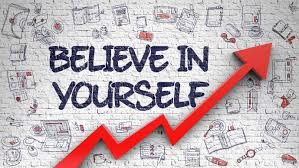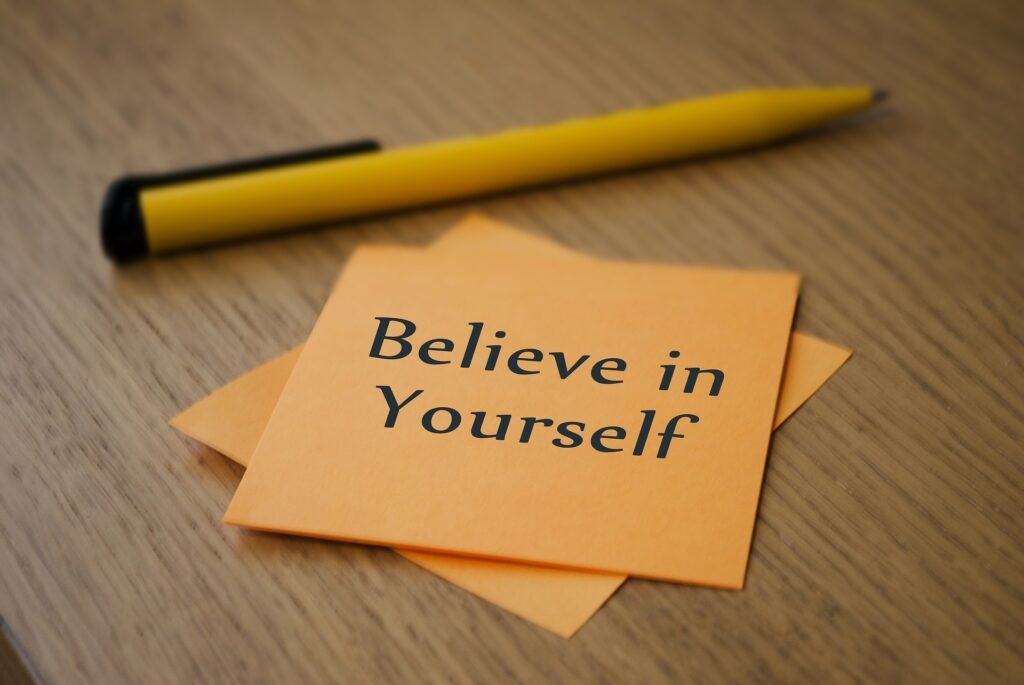We’ve all been there — standing in the aftermath of something that didn’t work out. Whether it was a business venture, a relationship, a personal goal, or a bold risk you took, failure has a way of shaking us right to the core. It isn’t just the loss of what you wanted to achieve, but the silent, creeping doubt it plants in your mind about your own worth, your abilities, and your future.
But here’s the truth: failure isn’t a life sentence. It’s a chapter, not your whole story. You can rebuild. You can rise. You can believe in yourself again — stronger, wiser, and more courageous than before. It might not feel easy now, but this moment could be the start of something extraordinary.
If you’re in that place right now where you’ve lost faith in yourself, this is for you. Let’s talk about how to find your way back to believing in your own power.

Understand That Failure Is a Universal Experience
The first step is to remind yourself that you’re not alone in this. Everyone you admire, every success story you’ve ever heard, every person who’s built something meaningful has failed — not once, but often many times. The only difference is that they didn’t let those failures define them.

It might look like everyone else has it together, but the truth is, behind every achievement is a string of mistakes, wrong turns, and painful moments. Understanding this takes away the false pressure that you’re the only one struggling.
Failure is not proof that you’re incapable. It’s proof that you had the courage to try.
Stop Tying Your Worth to One Outcome
One of the biggest reasons people struggle to believe in themselves after failure is because they link their entire self-worth to one situation. When a project fails or a goal doesn’t materialize, it can feel like you, as a person, have failed. But you are not your results.
You are a complex, capable, evolving individual with endless potential. A single event does not define who you are or what you can achieve. Detach your identity from your setbacks. You’re still valuable, worthy, and full of potential — no matter what didn’t work out.
Give Yourself Permission to Feel
There’s a misconception that to bounce back, you need to be relentlessly positive and brush off your feelings. The truth is, healing starts with honesty. It’s okay to feel disappointed, heartbroken, embarrassed, or angry. These emotions are valid.
Suppressing how you feel only prolongs the process. Allow yourself to grieve the loss of what you hoped for. Journal it out, talk to someone you trust, cry if you need to. By acknowledging your emotions, you lighten their weight.
Remember, processing emotions is not weakness. It’s a sign of emotional intelligence and resilience.

Reflect on What This Experience Taught You
Every failure holds lessons, even if they aren’t immediately obvious. Once the initial sting fades a little, ask yourself what you can learn from this experience. What did it reveal about your strengths, your limits, your habits, or your assumptions?
Sometimes failure exposes skills you didn’t know you had. Other times, it highlights what you need to work on. Maybe it teaches you about timing, strategy, or trusting your gut.
Write these lessons down. They’re valuable tools you’ll carry into your next chapter. Nothing is ever wasted if you extract wisdom from it.
Reframe the Narrative You’re Telling Yourself
The story you tell yourself about your failure is far more important than the failure itself. Are you saying, “I’m a loser, I always mess up,” or are you saying, “This didn’t work out, but I’m proud I tried and I’ll do better next time”?
Your inner dialogue shapes your reality. Be mindful of the words you’re using when you speak to yourself. Replace harsh, defeating thoughts with compassionate, constructive ones.
Try shifting from “I failed” to “I learned.” From “I’m hopeless” to “I’m growing.” Words carry weight — use them to build yourself up.
Start Small to Rebuild Confidence
When your self-belief is shaken, grand goals can feel overwhelming. It’s hard to picture conquering a mountain when you’re struggling to stand. So, start small.
Set achievable, daily goals that gently stretch you without adding pressure. It could be as simple as going for a morning walk, finishing a book, or reaching out to an old friend. Each small victory reinforces the message that you are capable and trustworthy to yourself.
Momentum builds from these little wins. Confidence is like a muscle — the more you use it, the stronger it gets.
Surround Yourself With Supportive People
Your environment matters more than you think. When you’re vulnerable, the voices around you can either lift you up or pull you deeper into self-doubt. Choose wisely.
Seek out people who remind you of your worth, who see the best in you even when you can’t, and who encourage you to keep going. Whether it’s a friend, a mentor, a sibling, or even a podcast or book that inspires you — stay close to positivity.
Let their belief in you act as a bridge until you can fully believe in yourself again.
Reconnect With Your ‘Why’
Sometimes we lose faith in ourselves because we lose sight of why we started in the first place. Revisit the original reasons you pursued that goal or dream. Was it to prove something, to help others, to express yourself, to create freedom, or to challenge yourself?
When the focus shifts from external validation to internal purpose, the weight of failure feels lighter. Purpose gives pain meaning. It reminds you that this moment is part of a much bigger journey.
Your ‘why’ can reignite your passion and realign your steps.

Stop Comparing Your Journey to Others
Comparison is the thief of joy, and after failure, it’s even more dangerous. Social media makes it too easy to fall into the trap of thinking everyone else is miles ahead while you’re stuck at zero.
But remember — you’re seeing their highlight reels, not their behind-the-scenes. People rarely post their breakdowns, their doubts, or their abandoned projects.
Your journey is yours alone. It has its own timing, detours, and milestones. Focus on your path, your pace, and your progress.
Practice Self-Compassion Daily
When you’re learning to believe in yourself again, treat yourself the way you would treat a dear friend going through the same thing. Would you call them a failure? Would you tell them to give up? Of course not.
You’d remind them of their strength, their past wins, and how setbacks don’t define them.
Do the same for yourself. Be gentle with your thoughts. Celebrate effort, not just results. Applaud yourself for showing up, for trying again, for healing.
Self-compassion isn’t indulgence — it’s fuel for resilience.
Take a Break if You Need To
Sometimes the best way to rebuild is to step away for a while. Constantly trying to ‘fix’ yourself or your situation can become exhausting. Give yourself permission to rest.
Go on a short trip, immerse yourself in a hobby, spend time in nature, or simply unplug from the expectations of productivity.
A pause can bring clarity. It reminds you that life is bigger than this moment, and you are more than your latest success or failure.
Visualize Your Comeback Story
It might feel distant now, but one day you’ll look back on this time as a turning point. Start picturing what that could look like. Visualize yourself stronger, wiser, doing things you once doubted you could.
Create a mental image of your future self — not perfect, but resilient. Not without fear, but brave enough to act anyway.
This vision can become your anchor on tough days. It helps you remember that setbacks are temporary, and better days are possible.
Channel the Energy Into Something New
Sometimes the best way to move past failure is to create new experiences. Dive into something you’ve never tried before. A new skill, a side project, a fresh goal — it doesn’t have to be grand, but it should be something that reminds you of your ability to grow.
New experiences shake up stagnant energy, give you fresh perspective, and open up unexpected opportunities. Even small changes can reignite your belief in your potential.
Remember — You’ve Overcome Before
This isn’t the first time life has knocked you down. Think back to moments you thought you wouldn’t recover from. Heartbreaks, disappointments, scary decisions. Yet here you are — breathing, standing, still fighting.
Use those past victories as proof. You’ve rebuilt before. You’ll do it again.
Believing in yourself isn’t about pretending to be invincible. It’s about knowing that no matter what happens, you have what it takes to rise.
Final Thoughts
Life doesn’t always go according to plan. Failure hurts, and it’s okay to admit that. But it doesn’t get to have the final word. You are allowed to mourn what was lost while also making room for what could be.
Believing in yourself again after failure is a quiet, daily decision. It’s choosing to show up for yourself, to rewrite your story, to find lessons in the mess, and to trust that your future holds more than this moment.
You are not broken. You are not finished. And your next chapter could be the one that changes everything.
Start small. Speak kindly. Move forward.
You’ve got this.
Follow us on Instagram: UAE STORIES













